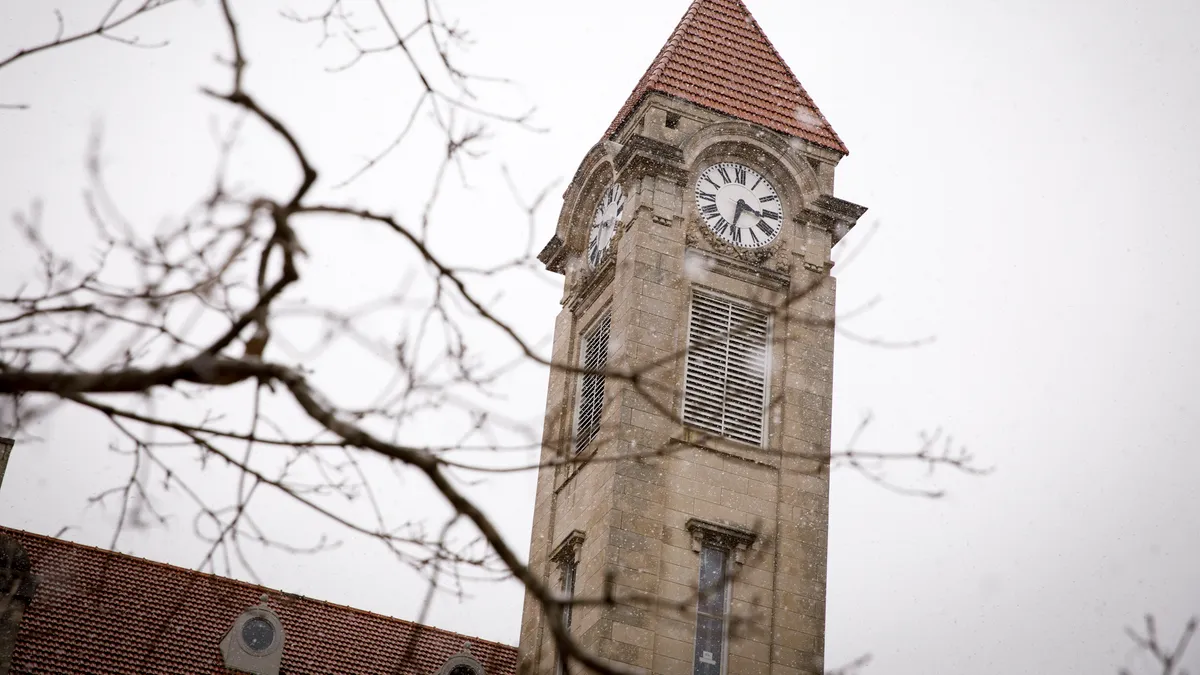Dive Brief:
- A new filing in a potential class-action lawsuit alleges officials at Indiana University Bloomington pressured staff physicians to avoid telling students that health issues may have been caused by mold in their dorms.
- The lawsuit was brought in October by several students, who claim college officials knew about the moldy conditions in student housing for years but didn't fix the issue. Their failure to act, the lawsuit says, resulted in a "full-blown emergency" last fall.
- Indiana University has denied it directed health staff to ignore mold-related health problems or that it downplayed the severity of the issue, The Chronicle of Higher Education reported.
Dive Insight:
The crisis came to a head late last year, when visible mold was found in 80% of inspected dorm rooms, according to the lawsuit. Moreover, roughly four times as many students living in the affected housing complained to the health center of mold-related illnesses than did three years prior.
The memo points to an email from Peter Grogg, executive director of the health center, to David O'Guinn, vice provost for student affairs and dean of students, as evidence that officials told university physicians to downplay mold-related illnesses.
In the email, Grogg cited another university executive who said there is mold in some residence halls but that health center staff should stop attributing students' symptoms to it.
University officials pushed back against the allegations in their statement to The Chronicle, in which they asserted students with illnesses "that could possibly be linked to mold exposure received free medical care."
The university will move some 1,100 students off campus for the 2019-20 academic year in order to renovate the dorms with the mold issues — a project expected to cost $56 million.
However, the lawsuit alleges officials knew about the festering problem since at least 2005, when the university released a report detailing the extent of the mold issues on campus. The lawsuit also alleges the report argued in favor of deferring action on the issue because students, not the university, would bear the health care costs of illnesses caused by the mold.
Severe mold outbreaks hit several campuses across the U.S. last year. Although heat waves and above-average rainfall are partly responsible, The Chronicle reported that deferred maintenance may be exacerbating the issue.
Colleges face a growing backlog of deferred building maintenance, according to a 2018 Sightlines report. Dorms can be "particularly ripe for the fungal growth" if their pipes and air conditioners aren't regularly serviced, The Wall Street Journal reported in 2017.
Other universities have come under fire for their handling of mold outbreaks on campus. In November, 18-year-old University of Maryland student Olivia Paregol died from adenovirus after developing respiratory issues while living in mold-infested student housing.
Although the university knew there was an outbreak of the virus on campus, it waited 18 days to inform the campus community, The Washington Post reported. Paregol's family has filed notice of a forthcoming lawsuit.











